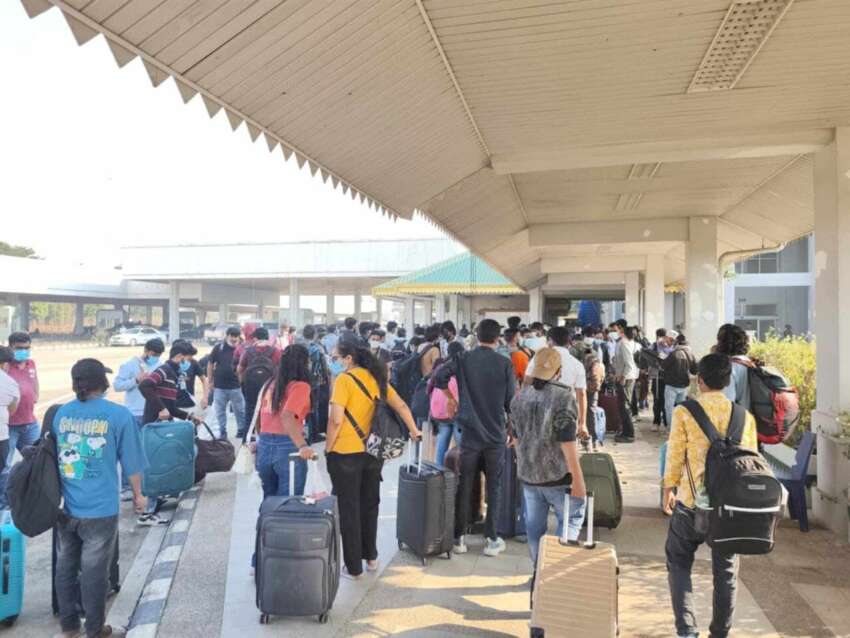
Twelve foreign women who were rescued from Chinese-run scam centers in Myawaddy Township, Karen State, have been found to be pregnant following sexual assault during their captivity. According to the Civil Society Network Assisting Human Trafficking Victims (CSNAHTV), these women are now seeking medical treatment in Thailand. One of the women reportedly suffered a miscarriage on March 19. The situation has highlighted the severe human rights violations occurring within these criminal operations along the Myanmar-Thai border.
Reports indicate that approximately 320 women, predominantly from Ethiopia, were victims of human trafficking in these Chinese-run scam centers in Myawaddy. Among them, twelve women became pregnant as a result of sexual assault while being held captive. Their release came after Chinese pressure prompted the Border Guard Force (BGF) and the Democratic Karen Benevolent Army (DKBA) to intervene and secure their freedom from the scam operations. This incident has shed light on the broader issue of human trafficking and exploitation in the border region.
Jay Krittaya, coordinator of CSNAHTV, has formally requested humanitarian and medical assistance for the pregnant women from Thai authorities and the National Human Rights Commission of Thailand. The Thai National Human Rights Commission has subsequently contacted the Ministry of Foreign Affairs to coordinate with relevant embassies and consulates to provide necessary assistance to these victims. This case has prompted increased attention to the need for comprehensive support systems for trafficking survivors, particularly those requiring urgent medical care.
The Thai National Security Council, Ministry of Interior, and Ministry of Defense have been urged by the Thai National Human Rights Council to provide emergency medical treatment and care for the pregnant trafficking victims. This situation represents a significant example of the human trafficking problems prevalent along the Myanmar-Thai border and demonstrates the urgent need for international attention and intervention. The case has also highlighted the complex challenges faced by law enforcement and humanitarian organizations in addressing cross-border criminal activities and providing adequate support to trafficking survivors.



